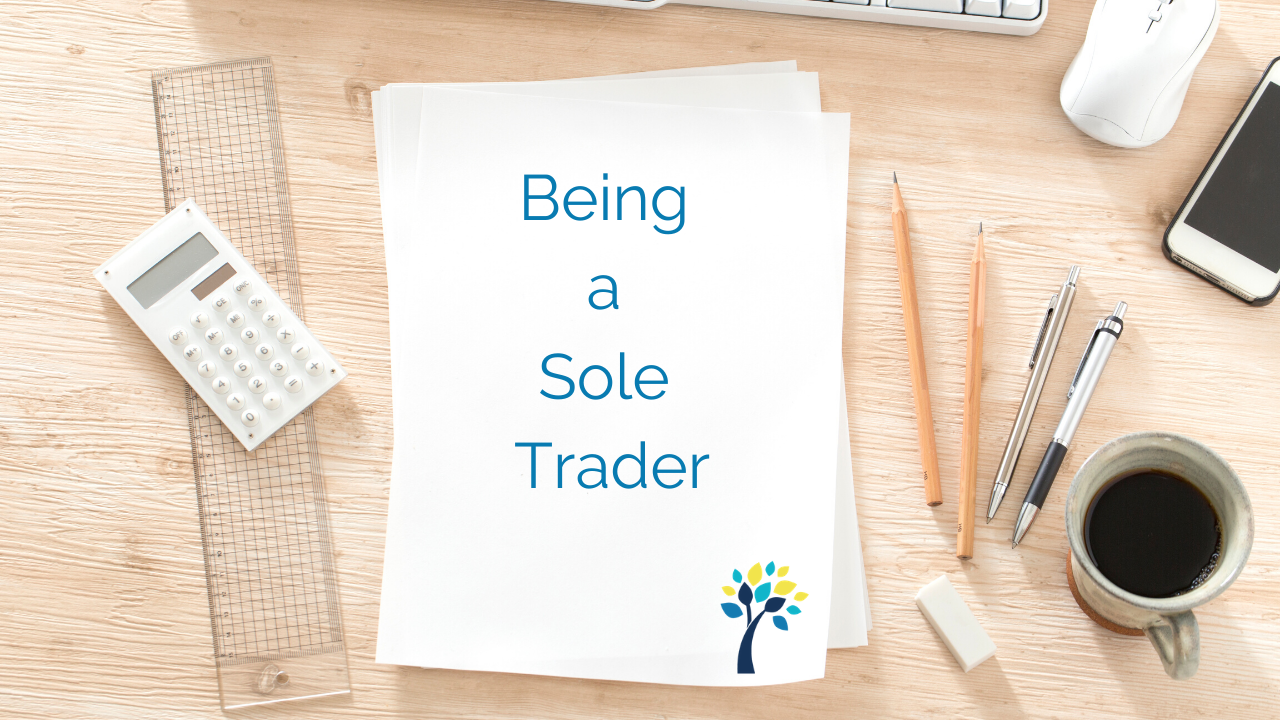Being a sole trader

There is often a lot of talk about whether you should be a sole trader or a limited company. There are circumstances when being a limited company is a really good idea, such as having people on the payroll or being in business with someone else. The main reason for most service businesses is that they want to save tax. Once you take home more than £30,000 from your business (sales less costs), it is worth considering. But it isn’t always the right thing to do and you should consult an accountant first. More information is here.
You must make sure you have sufficient insurance in place. When you are a sole trader, liability if a client sues you is unlimited (hence Limited company) and you need to have solid insurance in place to ensure they can’t take your house.
Being a sole trader, if you have been in business for more than a couple of years, has also been much easier to claim from the government in recent times. If you are a director of a limited company, you tend to pay yourself in dividends and a minimal salary to save tax, but that has been an issue recently. However, these are exceptional times, and not how to base your future strategy for your business.
One of my clients has been asked to be a limited company by a client, and there is no reason why she should do this as it doesn’t make any difference to how she does the work. As long as she has the correct insurances in place, it shouldn’t be an issue. Make sure you question it if this happens to you as it’s often a perception that you are less professional.
Keeping your business and personal separate is more tricky as a sole trader, as your tax return has to have all your income and costs and you can’t decide how much “salary” to take. However, I always recommend you have a separate bank account, as it’s much easier to find all your business transactions in one place when it comes to return time. It also means you know how much you need to keep back for tax.
Make sure you claim all of your expenses – you can get my free guide here.
You should keep 30% of your net income (sales less costs) aside as tax and national insurance, so you don’t get a shock in January, which is the worst time to get that sort of shock.
If you are a sole trader, it’s up to you to get your tax return in by 31st January each year. Usually you have to make a payment on account on 31st July each year (be careful of this as in your first year, that means if you have £1,000 due for that year, you will need to pay £500 on account in the January and again in the July).
This year, you don’t have to pay your payment on account in July, but you will need to pay your whole bill on 31st January 2021. You can submit your return any time after 5th April each year but just pay the bill in January – get on top of it now so you can sort out putting the money aside if you haven’t done already.
You can submit your tax return yourself but you need to get all the information you need together to do this. I have a sole trader guide for £27 to give you all the tools you need to get your tax return done now. Get it here.
